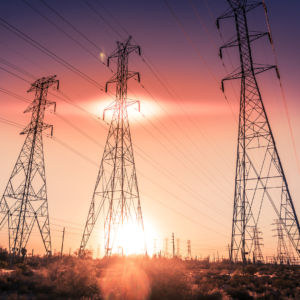When we think about our nation’s infrastructure, roads and bridges are often the first things that come to mind. America’s energy infrastructure, however, is just as crucial to economic development and prosperity across the country. As we recognize National Infrastructure Week, America’s electric companies and organized labor join together to encourage continued investments in smarter energy infrastructure and the workforce that supports it.
The electric power industry is one of the most capital-intensive industries in the country, supporting more than 7 million jobs — that’s one in every 20 jobs, or 5 percent of all jobs in America. It also contributes 5 percent to the country’s GDP. We call this the first 5 percent of the American economy, because almost every other sector depends on the energy the industry delivers.
Members of the Edison Electric Institute invest more than $100 billion in energy infrastructure each year. These investments are building a smarter energy infrastructure nationwide, one that drives economic activity, improves sustainability, enables electric companies to provide the energy solutions that customers want, and ensures that energy can get where it is needed, when it is needed. More than 75 million smart meters, which are installed in 60 percent of U.S. households, allow an increasing number of customers to have more control over their energy use.
Investments in energy infrastructure also strengthen the energy grid against the possibility of physical and, increasingly threatening, cyberattacks. For example, we already are investing in grid hardening measures and as part of our investments, we are deploying smart sensor technology that reduces restoration times for customers when disaster strikes.
The need for modern energy infrastructure also brings the need for a modern energy workforce to build and maintain it. Critical to this effort is the partnership between electric companies and organized labor groups like the International Brotherhood of Electrical Workers, whose members make up much of the electric power industry’s workforce.
As the electric power industry continues to evolve, it’s important to maintain an industry culture that attracts and supports highly skilled and adaptable employees that have the expertise and system know-how to maintain and manage the evolving energy grid. This is why IBEW works with the National Electrical Contractors Association to sponsor apprenticeships across the United States, spending about $180 million a year to train the next generation of electrical construction workers. We also support our nation’s military veterans through the Troops to Energy Jobs program, which helps train and employ veterans seeking positions with electric companies.
We must continue to create opportunities for individuals to be part of an industry that drives our economy and powers our communities — both for students entering the industry straight out of high school and college, as well as retraining those looking to join the electric power industry later in their careers.
As our leaders in Congress, the administration, and at the state and local level work to address America’s infrastructure needs, it’s important that policies facilitate infrastructure spending, support a diverse domestic energy mix, enable smart communities and help strengthen the energy grid’s resilience. Additionally, policies should streamline the permitting process in order for vital projects — and the jobs that come with them — to get approved in an efficient and timely manner.
We need effective workforce development solutions to achieve our shared goal of delivering America’s energy future to our customers. Investing in both our energy grid as well as our workforce will grow the economy and maintain reliable, affordable, safe and increasingly clean energy for all customers.

